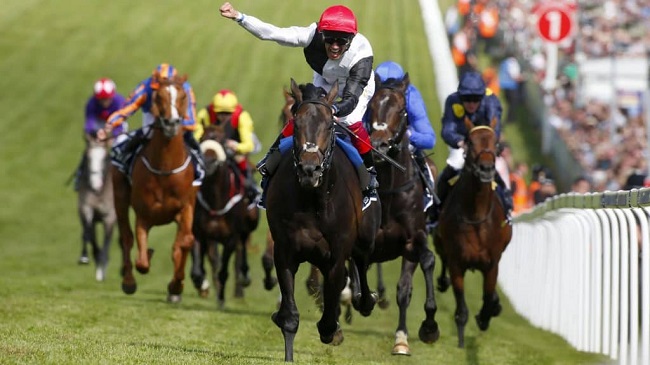The exhilarating world of horse racing has intrigued and attracted countless enthusiasts throughout history. However, stepping into this realm as a racehorse owner is a substantial financial commitment.
This guide provides detailed insights into the cost of buying a racehorse in 2023, along with factors that influence these costs and associated expenses that prospective owners should consider.

Purchasing a Racehorse: Initial Costs
The cost of buying a racehorse can vary dramatically, largely depending on the horse’s pedigree, age, training, and past performance. As of 2023, these costs typically range as follows:
Read Also:
Yearlings and Two-Year-Olds
Racehorses are often purchased at this young age before their racing potential is fully known. Yearlings (one-year-olds) usually range from $20,000 to $100,000, while two-year-olds with some training or performance history can go for $50,000 to $200,000.
Proven Racehorses
If you’re interested in purchasing a racehorse with a proven track record, expect to pay significantly more. These horses can cost anywhere from $200,000 to millions of dollars, particularly for top performers or promising prospects.
Breeding Stock
Purchasing a mare for breeding purposes or a stallion with impressive lineage can also command high prices, often exceeding $500,000 and potentially reaching into the millions for highly coveted bloodlines.
Ongoing Costs: Training, Care, and Upkeep
Aside from the initial purchase price, racehorse ownership involves considerable ongoing expenses. These costs typically include:
Training
A good racehorse trainer is essential for preparing your horse for racing success. In 2023, training costs range from $50 to $100 per day, amounting to $1,500 to $3,000 per month.
Boarding and Care
The costs for boarding, feeding, and general care for a racehorse are typically $20 to $30 per day or $600 to $900 per month. These costs can vary depending on the boarding facility and the specific needs of your horse.
Veterinary and Farrier Care
Routine veterinary care, including vaccinations, deworming, dental work, and any necessary medical treatments, can cost around $3,000 to $5,000 per year. Regular farrier care for hoof maintenance adds an additional $400 to $800 annually.
Insurance
Racehorse insurance costs, covering mortality and loss of use, typically range from 3% to 5% of the horse’s value per year.
The Cost of Competition: Race Entry and Travel
Aside from the horse itself and its upkeep, entering your horse in races is another significant cost to consider.
Entry Fees
Most horse races require an entry fee, which can range from a modest $50 for smaller races up to thousands of dollars for prestigious competitions. For example, entering a horse in the Kentucky Derby requires a $25,000 entry fee and an additional $25,000 if the horse starts.
Travel Expenses
If you plan to enter your horse in races that aren’t local, you’ll need to account for travel expenses. These include the cost of transporting the horse, which can range from $0.50 to $2.00 per mile. Moreover, there will be travel and accommodation costs for the trainer, jockey, and any staff.
Costs Associated with Jockeys and Agents
Jockeys and agents form an integral part of the racing team, and their fees need to be accounted for.
Jockey Fees
In most cases, jockeys receive a mount fee for each race they ride, which can range from $30 to $100 depending on the track. They also typically receive a percentage of the purse if they win or finish in the top positions.
Agent Fees
Agents, who arrange the jockey’s riding engagements, usually earn 25-30% of the jockey’s earnings.
The Potential for Earnings
While the costs of owning a racehorse are significant, there’s also the potential for earnings. Purses for winning or placing in races can range from a few thousand dollars in local races to several million in world-renowned races like the Kentucky Derby or the Dubai World Cup.
Additionally, successful racehorses can have substantial value as breeding animals once their racing career is over. A top racehorse with a strong bloodline can earn millions in stud fees.
Read Also:
Conclusion
Owning a racehorse can be an exhilarating venture, but it also comes with a significant financial commitment. As of 2023, the cost of a racehorse and its upkeep can range from thousands to millions of dollars annually.
Prospective racehorse owners should be prepared for both the initial purchase costs and the substantial ongoing expenses involved in maintaining and training a competitive racehorse.
However, it’s important to remember that owning a racehorse isn’t just about financial investment—it’s about the passion for the sport, the love for the animal, and the thrill of the race.
























